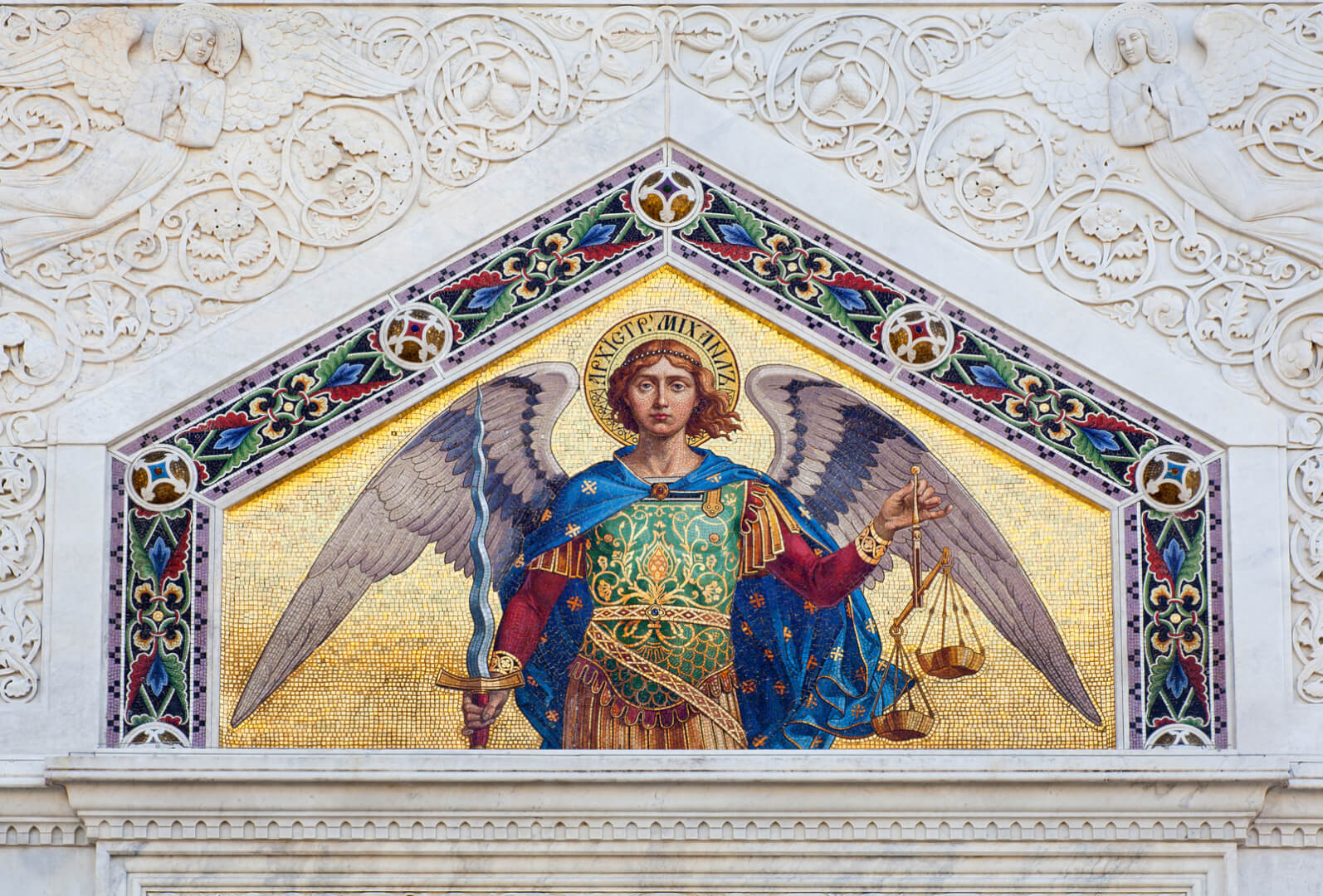Recently on The Patrick Madrid Show, Patrick hosted a special children’s segment on the show where he spent three hours answering the most poignant questions from Relevant Radio’s youngest listeners. Even children’s questions can express wisdom beyond their years.
11-year-old Emma called in to ask the question, “Why is St. Michael a saint if he’s an angel?” And even further, why are the other archangels, St. Gabriel and St. Raphael, also described as saints?
Patrick answered the question by explaining that in the beginning, when God made the angels, He gave them a choice, a sort of test to see where their true loyalties lay: in God or in their self-interests. The good angels are the ones that passed the test and proved that their only desire was to serve and honor God. And the bad angels are the ones that failed the test and showed God that they would rather serve themselves than their creator.
Patrick continued, saying that the good angels are describes as “the holy angels”, because of their decision to serve God. They reside in heaven with Our Lord forever, hence the descriptor “holy”. The word “holy”, as used in the Bible, comes from a Greek word that means “saint”. That is why we refer to Michael, Gabriel, and Raphael as “saints”. The Church does not canonize angels, because canonization is the formal declaration that we are certain that someone has gone to heaven. We already know the good angels are in heaven forever, so canonization is unnecessary.
Patrick took another call from 15-year-old Delaney who asked why it says that Jesus cursed a fig tree in the Bible.
The passage Delaney is referring to is from Chapter 11 of the Gospel of Mark:
The next day as they were leaving Bethany he was hungry.
Seeing from a distance a fig tree in leaf, he went over to see if he could find anything on it. When he reached it he found nothing but leaves; it was not the time for figs.
And he said to it in reply, “May no one ever eat of your fruit again!” And his disciples heard it. (Mark 11:12-14)
Specifically, Delaney wondered why Jesus did that and what message, if any, was he trying to convey? Patrick referred Delaney to another passage in Luke’s Gospel in which Jesus says that trees that do not bear good fruit should be cut down. Why should it be allowed to take up space if it isn’t proactively fulfilling its duty as a fruit tree?
Patrick explained that fruit trees are most often used as a metaphor for us, God’s children. We were granted free will, and the ability to choose between good and evil. If we choose good, we are producing good for the world; bearing good fruit. But when we choose to serve ourselves before God, just like the evil angels, we are useless. We are like trees that bear nothing or bear rotten fruit.
“And so, the ‘being cut down’ analogy has to do with going to hell. If at the end of your life, you have not produced good fruit, then you are not going to go to heaven.”
Just as the vinedresser was instructed to cut down the tree in the parable, Jesus cursed and condemned the fruitless fig tree that Delaney read about.
Tune in to The Patrick Madrid Show weekdays 8am – 11am CT


